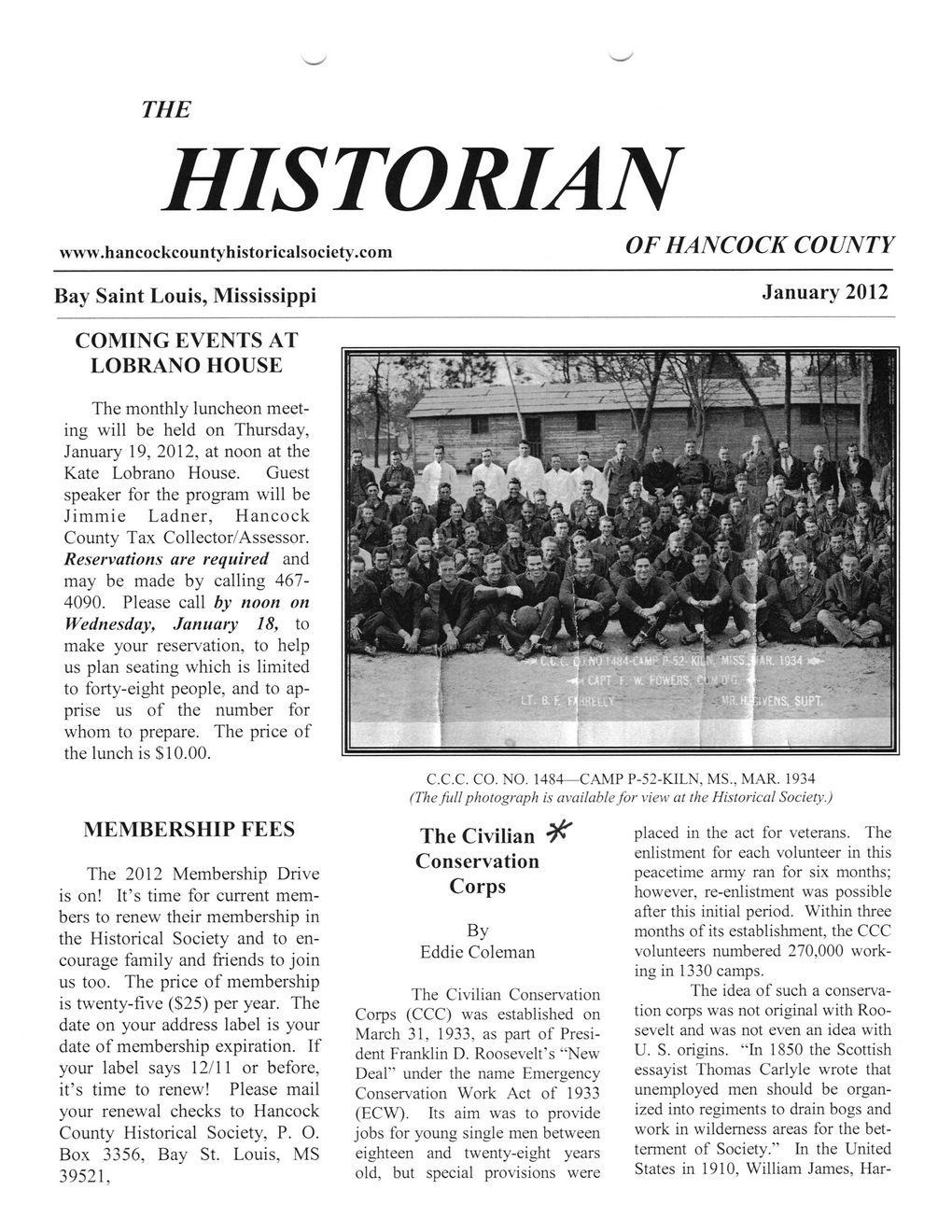This text was obtained via automated optical character recognition.
It has not been edited and may therefore contain several errors.
THE HISTORIAN w\vw. hancockcountyhistoricalsociety.com OF HANCOCK COUNTY Bay Saint Louis, Mississippi January 2012 COMING EVENTS AT LOBRANO HOUSE The monthly luncheon meeting will be held on Thursday, January 19, 2012, at noon at the Kate Lobrano House. Guest speaker for the program will be Jimmie Ladner, Hancock County Tax Collector/Assessor. Reservations are required and may be made by calling 467-4090. Please call by noon on Wednesday, January 18, to make your reservation, to help us plan seating which is limited to forty-eight people, and to apprise us of the number for whom to prepare. The price of the lunch is Si0.00. MEMBERSHIP FEES The 2012 Membership Drive is on! It’s time for current members to renew their membership in the Historical Society and to encourage family and friends to join us too. The price of membership is twenty-five ($25) per year. The date on your address label is your date of membership expiration. If your label says 12/11 or before, it’s time to renew! Please mail your renewal checks to Hancock County Historical Society, P. O. Box 3356, Bay St. Louis, MS 39521, C.C.C. CO. NO. 1484—CAMP P-52-KILN, MS., MAR. 1934 (The full photograph is available for view at the Historical Society.) The Civilian Conservation Corps By Eddie Coleman The Civilian Conservation Corps (CCC) was established on March 31, 1933, as part of President Franklin D. Roosevelt’s “New Deal” under the name Emergency Conservation Work Act of 1933 (ECW). Its aim was to provide jobs for young single men between eighteen and twenty-eight years old, but special provisions were placed in the act for veterans. The enlistment for each volunteer in this peacetime army ran for six months; however, re-enlistment was possible after this initial period. Within three months of its establishment, the CCC volunteers numbered 270,000 working in 1330 camps. The idea of such a conservation corps was not original with Roosevelt and was not even an idea with U. S. origins. “In 1850 the Scottish essayist Thomas Carlyle wrote that unemployed men should be organized into regiments to drain bogs and work in wilderness areas for the betterment of Society.” In the United States in 1910, William James, Har-

Civilian Conservation Corps -Historian-Article-2012-(1)